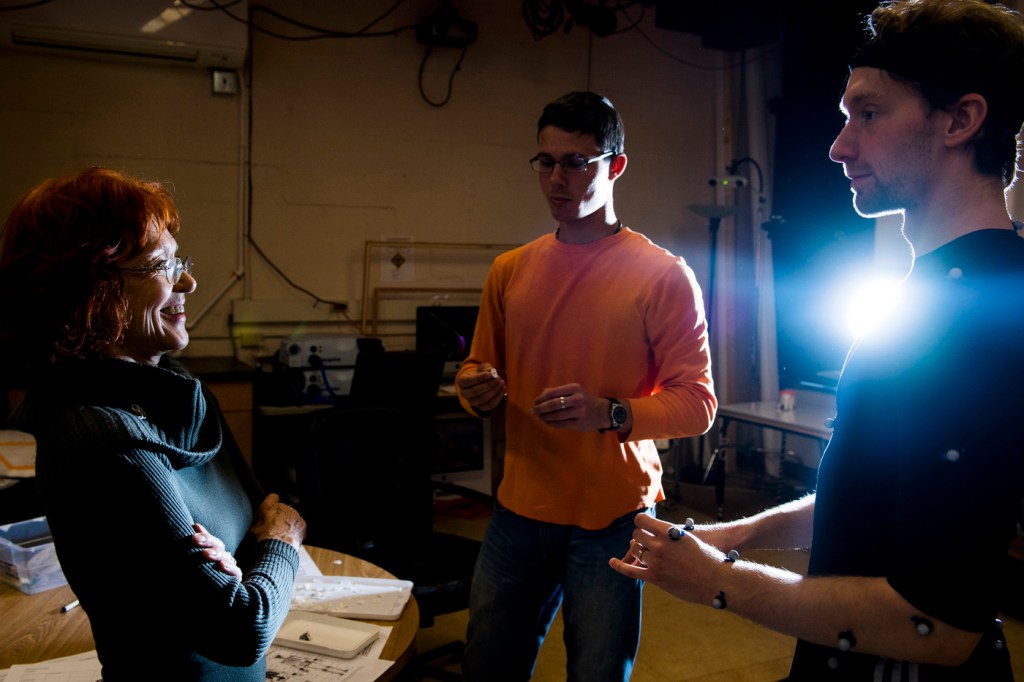Expert in human movement appointed University Distinguished Professor at Northeastern University

Human movement fascinates Dagmar Sternad. In January, she spent a day watching ballet dancers prance around her lab, with stickers on their joints. The stickers helped her track their movement.
She had the dancers stand still on a narrow beam. She asked them to walk on the beam. Could they do that again, this time with ski poles?
With postdoctoral researcher Marta Russo, Sternad is studying how the human body can balance. And who knows more about balance than a ballet dancer?
“What are the limits of human performance when it comes to balance?” Sternad asks. “These dancers constitute a practical limit. This is foundational research.”
Russo and Sternad, who is a professor of biology, electrical and computer engineering, and physics at Northeastern, are building models from the data they’re collecting for a bigger project that’s looking into how humans interact with objects, and how they maintain balance.
Their research could have far-reaching implications for clinical research, helping to shed insight, for example, on how to increase mobility in older adults or people with physical disabilities. Their findings could also help engineers design better robots.
“Balancing and falling is not a very understood problem,” she says. “There are a lot of studies, however we still have a very rudimentary understanding of how humans balance their entire body.”
Sternad, who directs the Action Lab at Northeastern, is an internationally known authority in the field of experimental and computational motor neuroscience. Her diverse academic career has spanned the disciplines of movement science, English linguistics and literature, experimental psychology, neuroscience, and kinesiology. Her studies of human motor control and learning have shed light on neurological defects in Parkinson patients, children with dystonia, and individuals who have suffered strokes.
In recognition of her achievements, Northeastern is giving Sternad the highest honor the university can bestow upon a faculty member, promoting her to the rank of University Distinguished Professor.
Sternad will be one of several honorees celebrated by President Joseph E. Aoun at Academic Honors Convocation on April 23. The annual ceremony recognizes students and faculty who have received prestigious awards for scholarship, research, or teaching over the past year.
The honorific title is conferred at the behest of the president and provost upon faculty members who have earned international recognition and distinction for their transformative educational and scholarly contributions.
“I am so thrilled and humbled by this honor,” Sternad said. “I have always simply followed my passion — to find out how we control our movements, how we walk, how we play, and most importantly how we dance. This has led me into deep scientific waters and I discovered how much fun science is.”
Sternad was nominated by Wendy Smith, a professor and associate chair in the biology department, who described her as an “unparalleled model of excellence” for each of the weighted criteria: interdisciplinary research, teaching, service and professional activity.
“Dagmar has been an inspiring teacher and mentor,” Smith wrote in her nomination letter. “She communicates with energy and impact, regardless of audience — students, colleagues, the general public. Her perfectly designed talks reflect an unmistakable passion for her work.”
Added Smith, “I can think of no one who more perfectly exemplifies a Northeastern University Distinguished Professor.”
For media inquiries, please contact media@northeastern.edu.





